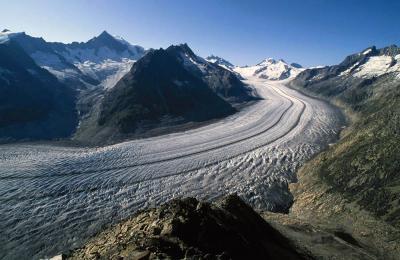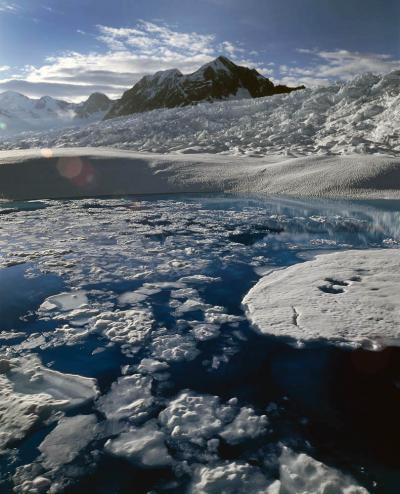How much all glaciers contribute to global sea-level rise has never been calculated before with this accuracy. An international group of researchers involving two geographers from the University of Zurich has confirmed that melting of glaciers caused about one third of the observed sea-level rise, while the ice sheets and thermal expansion of sea water account for one third each. So far, estimates on the contribution of glaciers have differed substantially. Now 16 scientists from nine countries have compared the data from traditional measurements on the ground with satellite data from the NASA missions ICESat (Ice, Cloud and land Elevation Satellite) and GRACE (Gravity Recovery and Climate Experiment).
Combined with a glacier inventory that is available globally for the first time, the researchers were able to determine the glacier mass changes all over the world much more accurately than before. «The extrapolations of local field measurements to large regions and entire mountain ranges traditionally applied sometimes overestimated the ice loss», describes UZH geographer Frank Paul the findings from the satellite measurements. And his fellow colleague Tobias Bolch adds: «We are well aware of the weaknesses of the individual satellite methods. However, in highly glacierized regions the results obtained using the two different methods agree well. With the mix of methods that have now been tested and applied, we have come a major step closer to determining glacier mass loss with higher precision.»

The Aletschglacier in Switzerland is a typical valley glacier and the largest one in the Alps. Its volume loss since the middle of the 19th century is well visible from the trimlines to the right of the image.
(Photo Credit: Frank Paul, UZH)
Earlier estimates should be corrected
The results show that almost all glacier regions lost mass in the years 2003 to 2009, most of all in Arctic Canada, Alaska, coastal Greenland, the southern Andes and in the Himalayas. By contrast, the glaciers in Antarctica – smaller ice masses that are not connected to the ice sheet – made scarcely any contribution to sea-level rise during this period. This finding deviates significantly from previous estimates, saying that the Antarctic glaciers caused around 30% of the global ice loss in the period from 1961 to 2004. «However, neither the periods nor the data basis are directly comparable here», adds Bolch, «so we shouldn't make any premature conclusions in this respect.»
The results published in «Science» have important consequences for past studies: Bolch and Paul conclude by recommending that «Earlier global estimates on the contribution of glaciers to sea-level rise should be revised again».

Meltwater pounded at surface in accumulation zone, Columbia Glacier, Alaska, July 2008.
(Photo Credit: W. Tad Pfeffer)
Source: University of Zurich